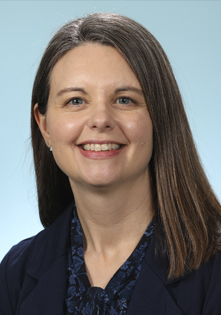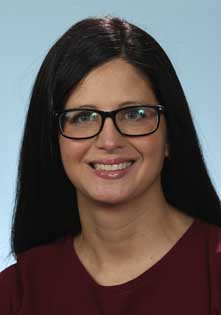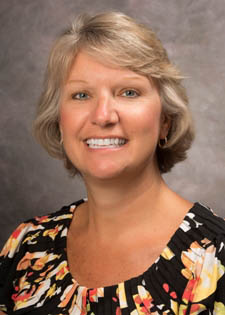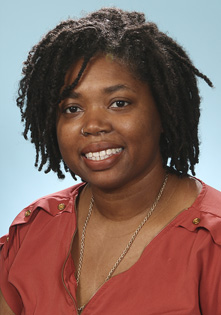Fieldwork
Overview
Fieldwork experience is a crucial part of professional preparation and is integrated into the design of the curriculum of the Program in Occupational Therapy at Washington University School of Medicine in St. Louis (WashU OT). The purpose of fieldwork is to promote students’ clinical reasoning and reflective practice, facilitate transmission of the values and beliefs that enable ethical practice, and develop students’ professionalism and competence as they transition into the role of an occupational therapist (Accreditation Council for Occupational Therapy Education [ACOTE], 2018, Standards C.1.0). All fieldwork experiences are assigned and overseen by Jessie Bricker, OTD, OTR/L, the Academic Fieldwork and Capstone Coordinator (AFWCC).
Click on the plus sign for information.
Level I Fieldwork
Level I Fieldwork experiences vary in length and offer scaffolded learning experiences throughout the didactic portion of the curriculum. The goal of Level I Fieldwork is to, “introduce students to fieldwork, apply knowledge to practice and develop an understanding of the needs of clients” (ACOTE, 2018 , p. 41). At WashU OT, Level I Fieldwork experiences are designed to facilitate connections between didactic coursework and fieldwork by encouraging the application of practice concepts and process es, guided by participation in clinical activities in a variety of traditional and emerging settings.
The following table demonstrates how the Level I Fieldwork experiences are integrated into the curriculum and support students in integrating information from the classroom with their understanding of practice. Level I Fieldwork occurs in the greater St. Louis area and can be supervised by a variety of qualified professionals including, but not limited to, occupational therapy practitioners, teachers, nurses, social workers, physical therapists and speech language pathologists (ACOTE, 2018, Standard C.1.8).
| Semester | Rotation | Course |
Format |
| Spring Semester, Year 1 | Level IA | OT 626 Professional Identity and Practice II | Scheduled days throughout the semester |
| Summer Semester, Year 1 |
Level IB |
OT 632 Evaluation and Intervention of Children and Youth | One-week, full-time |
| Spring Semester, Year 2 |
Level IC |
OT 656 Professional Identity and Practice IV |
Scheduled dates throughout semester |
Level II Fieldwork
After successfully completing required coursework and Level I Fieldwork, MSOT and OTD students complete two, 12-week Level II Fieldwork experiences. All students must successfully complete both Level II Fieldwork rotations to meet graduation requirements. The schedules for MSOT and OTD Level II Fieldwork rotations differ based on the course sequence required for each program as described in the table below. For more details about course sequence, please see the following curriculum grids:
Click here to view the MSOT curriculum grid.
Click here to view the OTD curriculum grid.
| Degree Plan |
Level IIA Fieldwork |
Level IIB Fieldwork |
| MSOT | Summer, Year 2 | Fall, Year 3 |
| OTD |
Fall, Year 3 |
Spring, Year 3 |
WashU OT maintains fieldwork contracts with numerous practice sites throughout the U.S. in a variety of settings across the lifespan. States in red represent where we have fieldwork contracts.
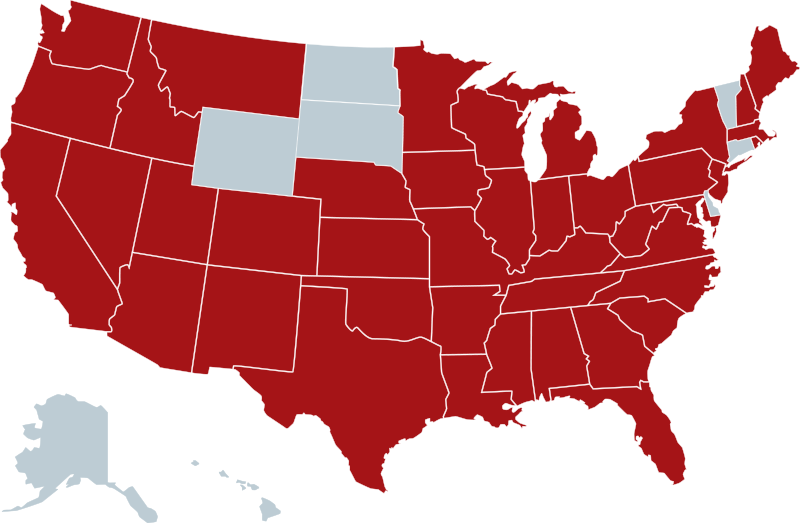
Students have the opportunity to preference Level II Fieldwork sites based on their interests and professional goals. Students choose the setting and locations within program guidelines, site availability and the requirements set by WashU OT and the ACOTE.
Student Coordinator and Educator Resources
WashU OT greatly appreciates the partnerships we have with our fieldwork sites and our fieldwork educators. WashU OT is an active participant in the Gateway Occupational Therapy Education Council (GOTEC), which offers regular trainings and resources to fieldwork educators. Please contact Jessie Bricker, OTD, OTR/L, AFWCC, for further information specific to WashU OT or to schedule a training for your team.
AOTA Fieldwork Resources
AOTA has many resources for fieldwork educators to help you build your fieldwork program or improve your clinical supervision skills.
Interested in taking fieldwork students?
Fieldwork students can be a great addition to occupational therapy practice settings by offering clinicians an opportunity to grow their skills in clinical supervision and mentorship while bringing fresh perspectives on evidence-based practice to the setting. WashU OT is always interested in growing opportunities for our students in a variety of traditional and emerging practice settings across the US. If your organization is interested in taking WashU OT students for Level II Fieldwork, please contact us.
If you are a student coordinator at one of our partnering sites, we are currently collecting availability for our upcoming Level II rotations.
Accreditation Council for Occupational Therapy Education. (2018). 2018 Accreditation Council for Occupational Therapy Education (ACOTE®) Standards and Interpretive Guide (effective July 31, 2020). The American journal of occupational therapy, 72 (Supplement_2), 7212410005p1–7212410005p83. https://doi.org/10.5014/ajot.2018.72S217
Meet Our Fieldwork and Capstone Development Office
|
|
|
|
|
|
|
|


